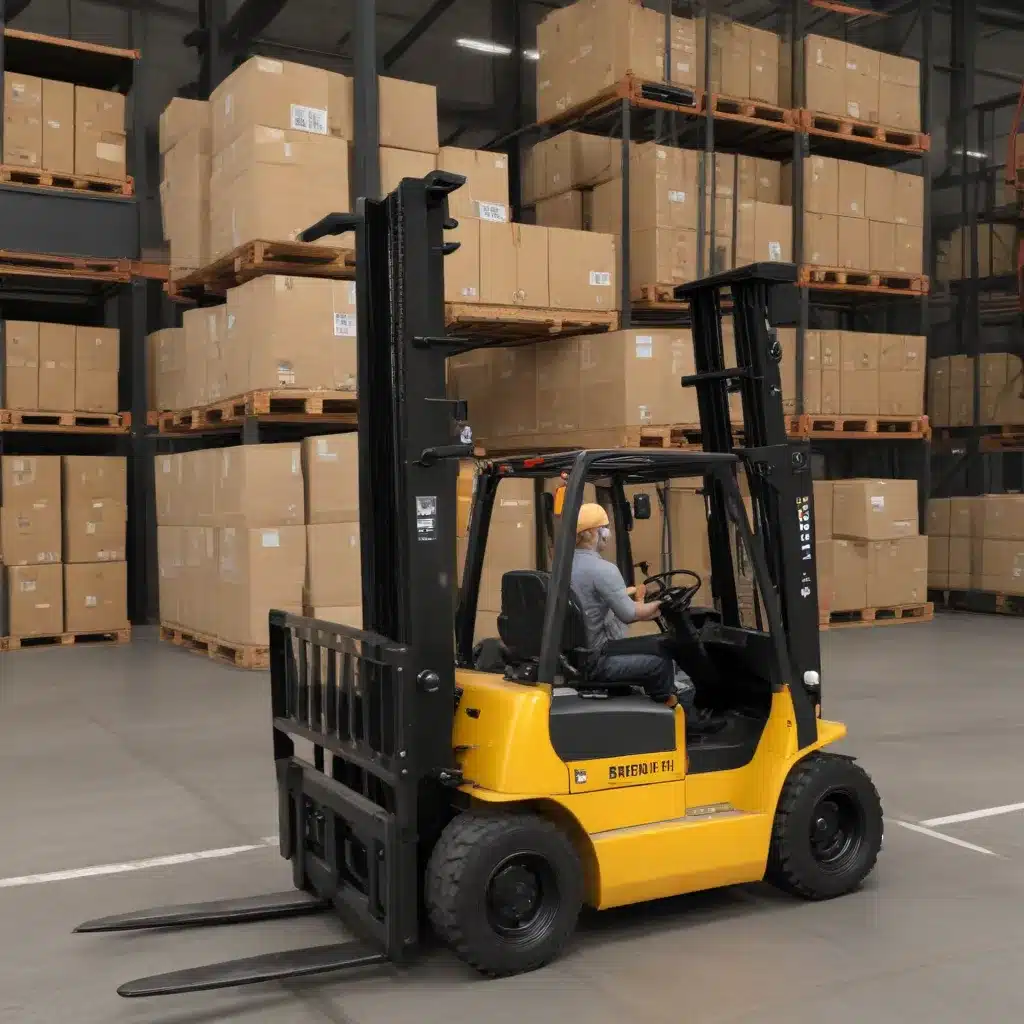
The Rise of Forklift Simulation Training
In today’s rapidly evolving logistics landscape, the demand for skilled and efficient forklift operators has never been higher. As companies strive to streamline their operations and maximize productivity, they are increasingly turning to innovative training solutions to develop a competent and safety-conscious workforce. One such solution that is gaining traction in the industry is forklift operator simulation-based assessments.
Forklift simulation training offers a risk-free, cost-effective, and highly engaging way to train and evaluate forklift operators. By immersing trainees in realistic virtual environments, these simulation-based systems provide a comprehensive and immersive learning experience that prepares operators for the challenges they will face on the job.
The Benefits of Simulation-Based Assessments
Improved Safety: One of the primary advantages of forklift simulation training is the ability to teach operators safe driving techniques and hazard recognition in a controlled environment. Trainees can practice maneuvering the forklift, navigating tight spaces, and handling loads without the risk of damaging equipment or causing injury. This helps to develop muscle memory and instills safe operating habits that can be readily applied in the real world.
Enhanced Skill Development: Forklift simulation training allows operators to hone their skills in a variety of scenarios, ranging from basic handling to more complex tasks like loading and unloading trucks or navigating a busy warehouse. The ability to practice these skills in a virtual setting enables operators to learn at their own pace, receive instant feedback, and build confidence before operating a real forklift.
Cost-Effectiveness: Traditional forklift operator training can be time-consuming and costly, often requiring the use of actual equipment and dedicated training facilities. Simulation-based assessments, on the other hand, offer a more efficient and economical solution. By eliminating the need for physical equipment and providing a scalable training platform, these systems can significantly reduce the overall cost of operator training and evaluation.
Customizable Training Environments: Forklift simulation platforms can be customized to reflect the specific operating conditions and challenges faced by the operator. This allows trainers to create tailored scenarios that address the unique requirements of their facility, ensuring that operators are well-prepared to handle the tasks and obstacles they will encounter on the job.
Detailed Performance Tracking: Simulation-based assessments provide detailed data on an operator’s performance, including their speed, load control, maneuverability, precision, and safety. This information can be used to identify areas for improvement, track progress, and inform targeted training interventions, ultimately leading to a more skilled and reliable forklift workforce.
Leveraging VR Technology for Immersive Training
One of the most exciting developments in forklift simulation training is the integration of virtual reality (VR) technology. VR-based forklift simulators, such as the Raymond Virtual Reality Simulator, offer an unparalleled level of immersion and realism, allowing operators to fully engage with the virtual forklift and its surrounding environment.
The SANLAB Forklift Simulator is another example of a state-of-the-art VR training solution that provides a comprehensive and customizable learning experience. With its advanced motion platforms, realistic vehicle feedback, and a wide range of training scenarios, the SANLAB Forklift Simulator helps operators develop the skills and confidence they need to excel in their roles.
Integrating Simulation-Based Assessments into Forklift Operator Training
To effectively incorporate simulation-based assessments into a forklift operator training program, it’s important to follow a structured approach:
-
Establish Training Objectives: Clearly define the learning goals and competencies that the training program aims to develop, such as safe driving techniques, load handling, navigational skills, and accident risk management.
-
Customize Training Scenarios: Work with the simulation provider to create a suite of training scenarios that align with the specific needs and operational requirements of your facility. This may include tasks like slalom courses, circular maneuvers, obstacle navigation, and warehouse/truck loading exercises.
-
Implement a Comprehensive Evaluation Process: Utilize the detailed performance data generated by the simulation platform to assess the strengths and weaknesses of each operator. This information can then be used to identify areas for improvement and tailor the training curriculum accordingly.
-
Encourage Continuous Learning: Incorporate regular simulation-based assessments into the ongoing training regimen, allowing operators to build upon their skills and adapt to changing workplace conditions. This helps to maintain a high level of proficiency and ensures that your forklift workforce is prepared to handle any challenge that may arise.
-
Leverage Simulation for Hiring and Onboarding: Integrate simulation-based assessments into the hiring process to evaluate the skills and aptitude of potential forklift operators. This can help you identify the most qualified candidates and ensure that new hires are well-equipped to succeed in their roles.
By embracing simulation-based assessments, forklift operators and the companies that employ them can benefit from a more efficient, effective, and sustainable training approach. This innovative technology not only enhances skill development and safety but also contributes to the overall productivity and competitiveness of the logistics industry.
Conclusion: The Future of Forklift Operator Training
As the logistics and warehousing sectors continue to evolve, the need for skilled and adaptable forklift operators has become increasingly critical. Simulation-based assessments, particularly those leveraging virtual reality technology, offer a transformative solution that addresses the training and evaluation challenges faced by the industry.
By providing a risk-free, cost-effective, and highly engaging learning environment, forklift simulation platforms empower operators to develop the necessary skills, confidence, and safety awareness to excel in their roles. The detailed performance data generated by these systems also enables trainers to identify areas for improvement and tailor the training curriculum accordingly, ensuring that operators are well-prepared to handle the demands of the modern workplace.
As the forklift industry continues to evolve, simulation-based assessments will undoubtedly play an increasingly vital role in shaping the future of forklift operator training. By embracing this innovative technology, companies can invest in the development of a highly skilled, safety-conscious, and efficient forklift workforce – a crucial step in driving the logistics industry forward.

